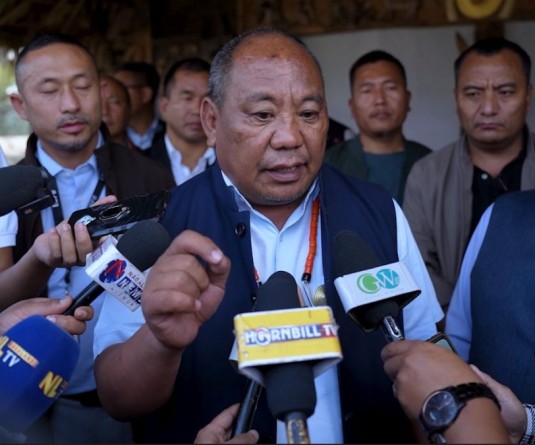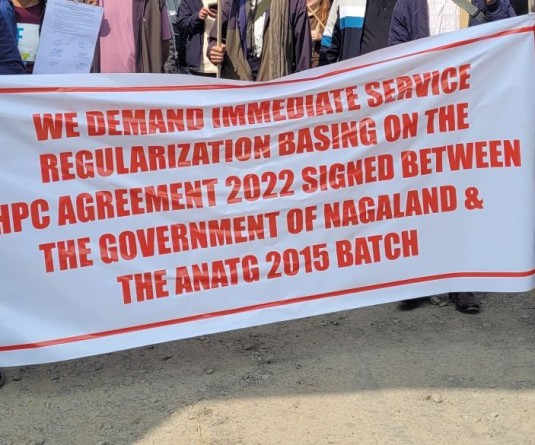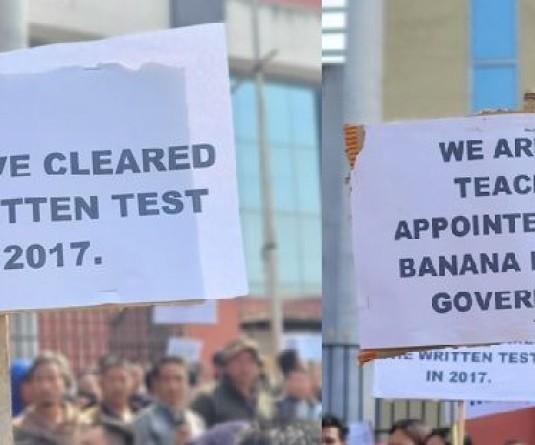
Morung Express News
Dimapur | January 14
After filing a special leave petition against the judgment and order passed by the Gauhati High Court Kohima Bench in a case pertaining to the 'equal pay for equal work' principle, the Nagaland Government has informed the Supreme Court that it is taking steps to implement the HC’s order.
On January 12, the State's counsel told the Supreme Court that the government has already made a decision in view of the apex Court's order on December 11, 2023. However, the counsel submitted that some time is required to pass appropriate orders on arrears.
Accordingly, the two-bench judges, Justice JK Maheshwari and Justice Sudhanshu Dhulia, directed for relisting the matter in February.
On December 11, the apex court had directed the Government of Nagaland to implement the order passed by the on June 14, 2022.
Case Background:
As per the court’s records, the matter pertains to a writ petition first filed in 2019 by a sweeper, initially appointed on a contingency basis in the office of the EAC, Aghunaqa, under the then Additional Deputy Commissioner, Nuiland, from August 1, 2012, in the scale of pay of Rs. 3000 (Fixed) per month.
After serving for about 6 years, the petitioner made a representation dated 7.12.2018 for the grant of the scale of pay to the ADC Nuiland, who forwarded the same to the Deputy Commissioner, Dimapur.
However, with no actions on the representation, the sweeper approached the Gauhati HC Kohima Bench for the redressal of the grievance.
The State respondents, meanwhile, filed a counter affidavit relying on the Office Memoranda dated 19.06.2013 and 24.07.2017, clarifying that there is no difference between casual and contingency appointments.
As the appointments made without a sanctioned post, no application should be submitted for the grant scale of pay in respect of any employee, the State respondents contended.
However, in its judgment order dated June 14, 2022, the HC Kohima Bench noted that it is already a settled position of law that persons engaged for the same work cannot be paid less than another who performs the same duties and responsibilities, especially in a welfare State.
Accordingly, based on the ratio laid down by the Supreme Court in the 'State of Punjab and Others vs. Jagjit Singh and Others,' the judge ruled that the petitioner has made out a case for the grant of the scale of pay.
.Accordingly, the HC Kohima Bench directed the State respondents to pay the petitioner the minimum scale of pay of a sweeper along with arrears from the date of filing the writ petition within four months.
The State respondents appealed against the judgment, but the Division Bench of the HC Kohima Bench on September 14, 2022, found no infirmity with the single-judge ruling and directed to carry out the order within 60 days.
The State, thereafter, went to the Supreme Court, to challenge the Division Bench order.
It must be noted here that in the Jagjit Singh case, the apex court had observed that there is 'no room for any doubt that the principle of "equal pay for equal work" has emerged from an interpretation of different provisions of the Constitution and the principle has also been extended to temporary employees (differently described as work-charge, daily-wage, casual, ad-hoc, contractual, and the like).
'...An employee engaged for the same work cannot be paid less than another who performs the same duties and responsibilities,' the apex court had ruled.
For implementation, however, the apex court stated that 'onus of proof,' of parity in the duties and responsibilities resides the person claiming the same.






